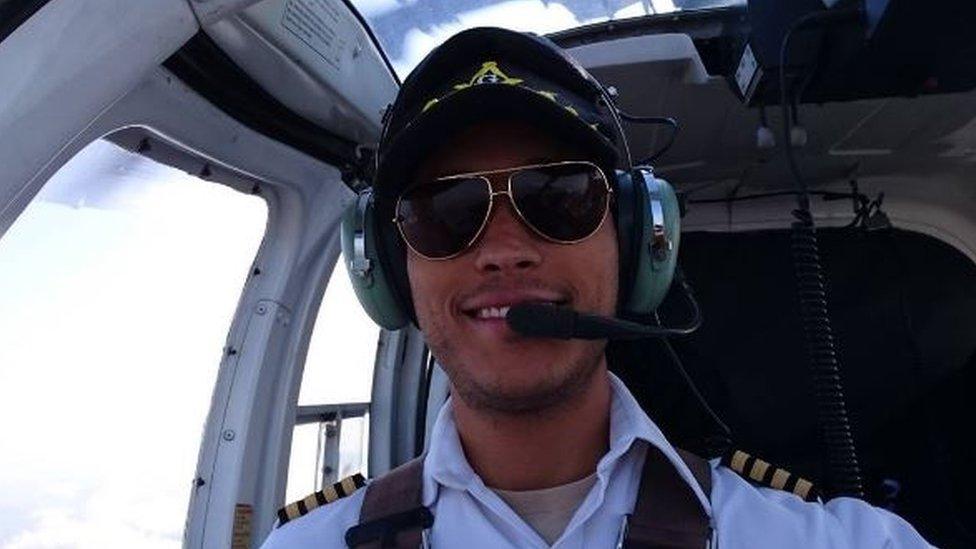Venezuela crisis: Five things that can happen in a day
- Published
Venezuela has been in turmoil for months, with regular street demonstrations and more than 70 protest-related deaths since April.
But Tuesday was a particularly big day.
Pro-government crowds stormed the National Assembly, the president was accused of swiping powers from one of his highest-profile critics, and a rogue policeman launched a helicopter attack on the Supreme Court.
Here is a round-up of the headline events in a 24-hour period.
Protests and looting
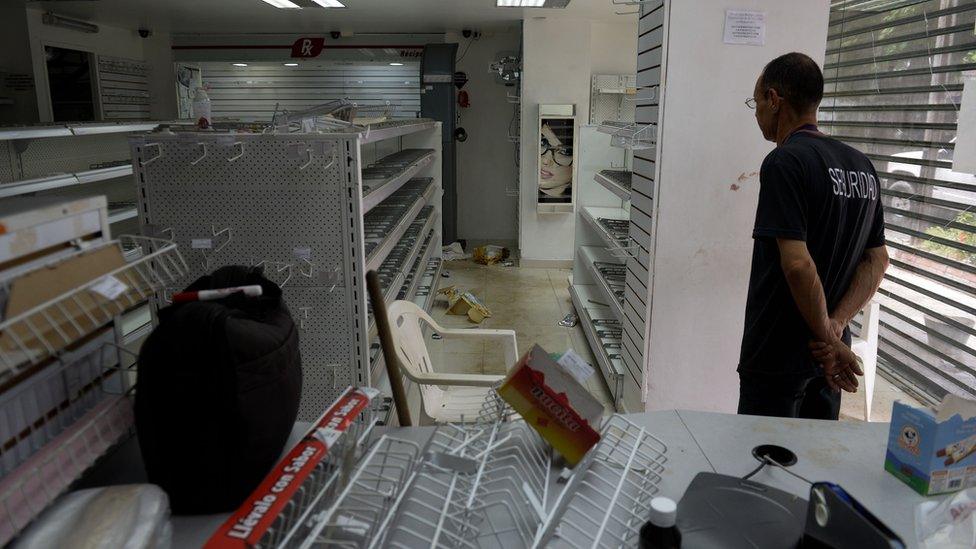
A security guard inside a looted pharmacy in Maracay on Tuesday
Protests are currently a near-daily occurrence in Venezuela, but the coastal city of Maracay experienced particularly severe looting on Monday night and into Tuesday morning.
Dozens of businesses were ransacked, according to the state prosecutor.
The president's speech
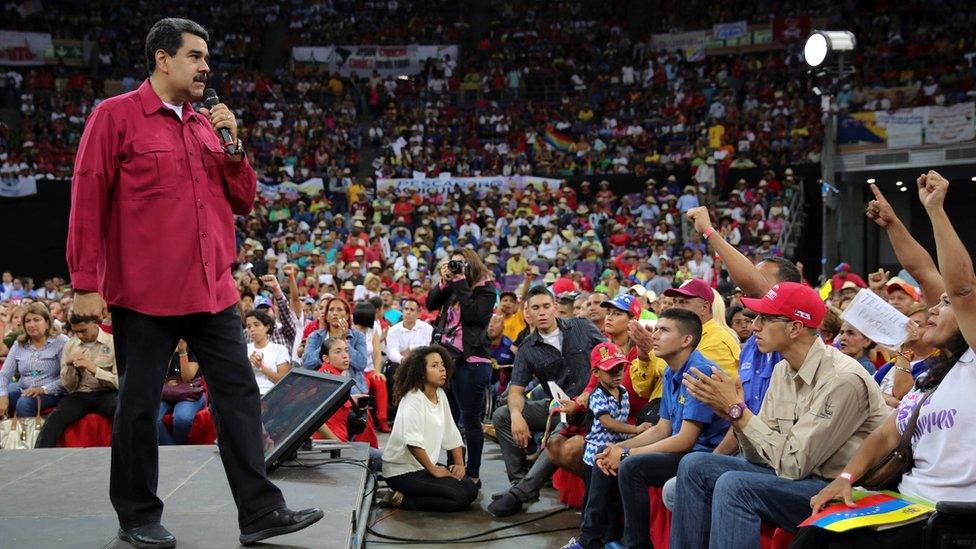
President Maduro addressing a crowd of supporters on Tuesday
President Nicolás Maduro regularly gives long televised addresses, but Tuesday's contained some highly charged phrases that captured extra attention.
"If Venezuela were plunged into chaos and violence and the Bolivarian Revolution was destroyed, we would go to combat, we would never give up," said the president. "And what we could not do with the votes, we would do with arms. We would liberate our country with arms."
Military planes then flew over Caracas to practise for a July parade, startling some locals.
Writing on Twitter, Opposition leader Henrique Capriles, external said: "Don't forget this declaration of war on Venezuelans today!"
Clashes in the National Assembly
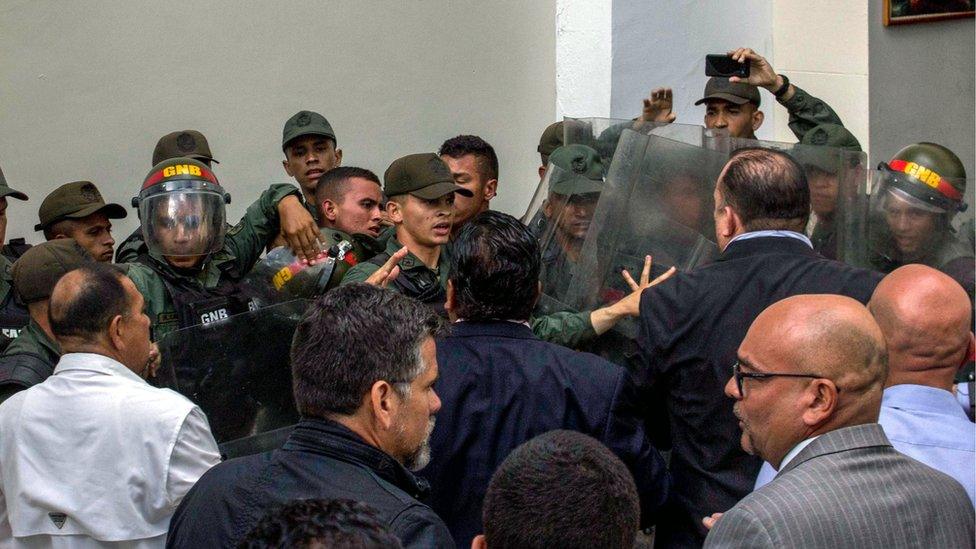
Scuffles outside the National Assembly
In the early evening, violence broke out at the opposition-controlled National Assembly.
It started when the national guard entered the building and clashed with lawmakers.
Then pro-government gangs stormed in and would not let the politicians leave, according to Congress leader Julio Borges.
Two members of parliament were injured and a legislative session was suspended, said the EFE news agency,
A helicopter attack
The helicopter circles buildings before gunshots and a bang are heard
Shortly afterwards, a helicopter launched an attack on the Supreme Court.
President Maduro said grenades were dropped on the building and called it a "terrorist" incident.
Rogue policeman, and occasional actor, Oscar Pérez is said to have piloted the stolen helicopter.
His whereabouts is unknown.
Attorney general's powers shifted
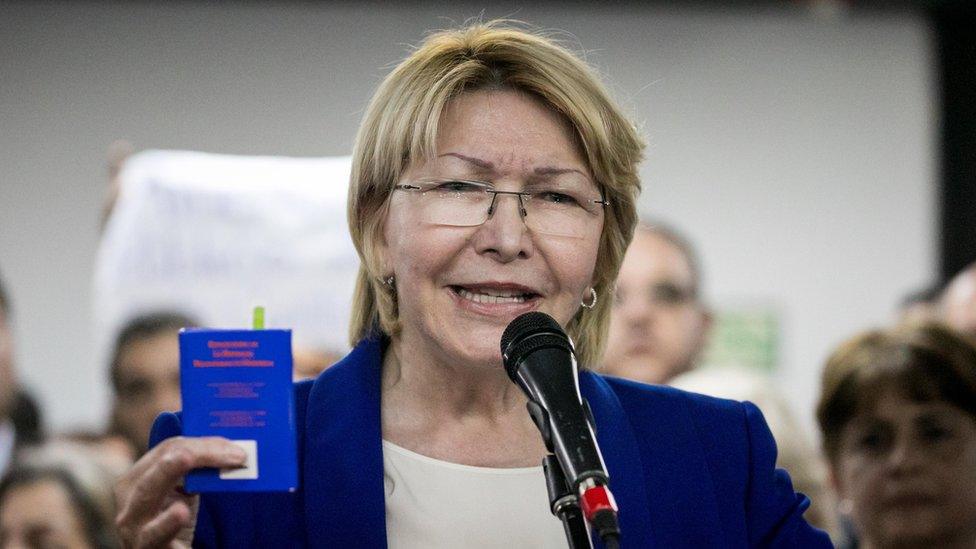
Attorney General Luisa Ortega Díaz addressing supporters earlier this month
Finally, later that night, the Supreme Court gave the ombudsman, Tarek William Saab, investigatory powers normally associated with the attorney general.
The president has had a tense relationship with Attorney General Luisa Ortega, once a staunch ally, since she started to criticise his decisions in public.
Critics believe he is trying to push her out and she may even be put on trial.
- Published21 June 2017
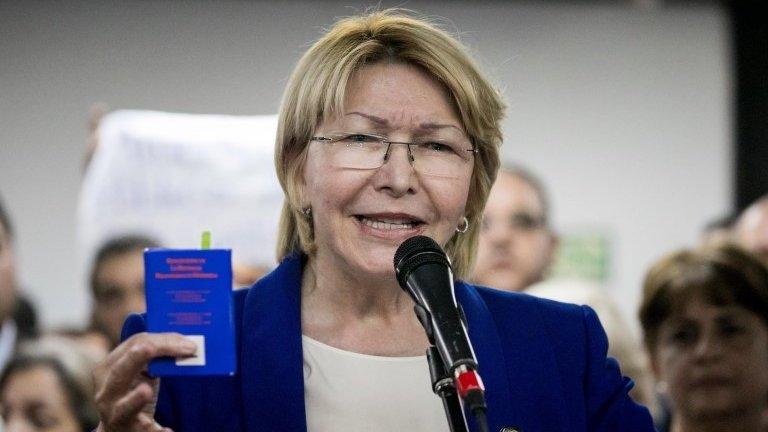
- Published28 June 2017

- Published5 July 2017
